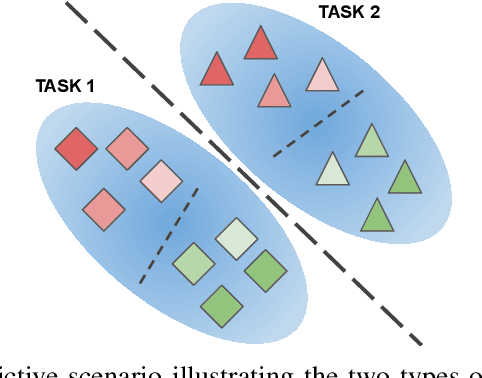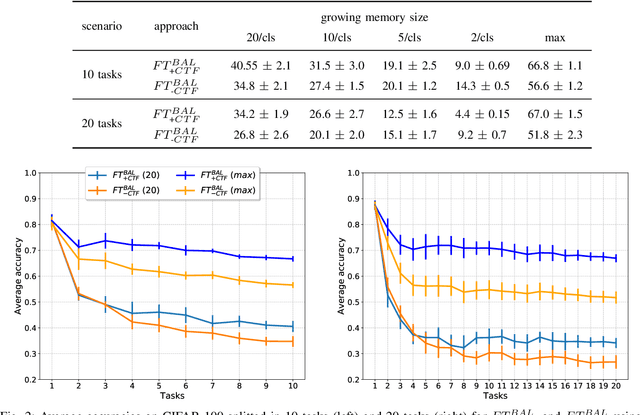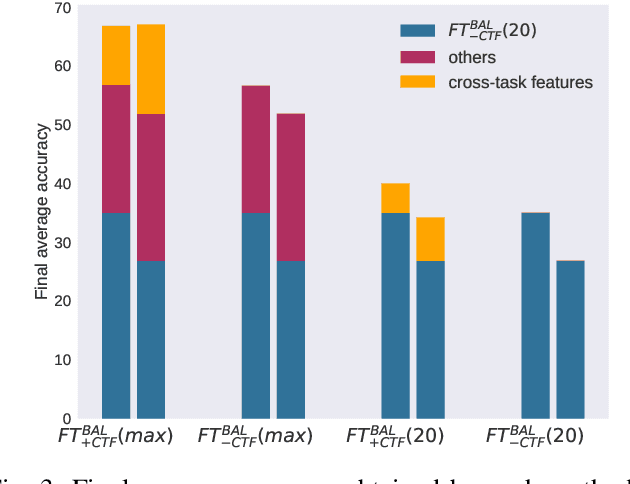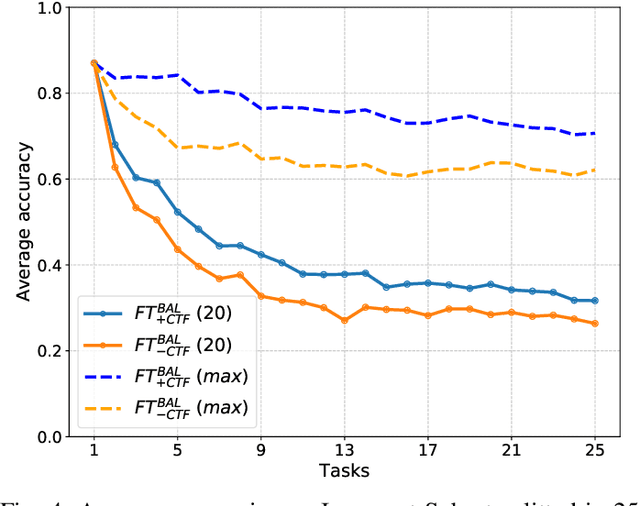On the importance of cross-task features for class-incremental learning
Paper and Code
Jun 22, 2021



In class-incremental learning, an agent with limited resources needs to learn a sequence of classification tasks, forming an ever growing classification problem, with the constraint of not being able to access data from previous tasks. The main difference with task-incremental learning, where a task-ID is available at inference time, is that the learner also needs to perform cross-task discrimination, i.e. distinguish between classes that have not been seen together. Approaches to tackle this problem are numerous and mostly make use of an external memory (buffer) of non-negligible size. In this paper, we ablate the learning of cross-task features and study its influence on the performance of basic replay strategies used for class-IL. We also define a new forgetting measure for class-incremental learning, and see that forgetting is not the principal cause of low performance. Our experimental results show that future algorithms for class-incremental learning should not only prevent forgetting, but also aim to improve the quality of the cross-task features. This is especially important when the number of classes per task is small.
 Add to Chrome
Add to Chrome Add to Firefox
Add to Firefox Add to Edge
Add to Edge